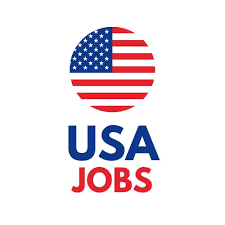Healthcare Jobs in the USA
-
 Introduction: Why Choose a Healthcare Career in the USA?
Introduction: Why Choose a Healthcare Career in the USA? - Healthcare Jobs in the USA.Choosing a healthcare career in the USA is a smart move for anyone looking for job stability, growth, and purpose. The U.S. healthcare system is one of the largest in the world, offering a wide range of job opportunities in hospitals, clinics, research labs, and even remote care. With an aging population and constant advancements in medicine, the demand for skilled healthcare workers continues to grow. Whether you’re a nurse, therapist, technician, or doctor, working in U.S. healthcare means making a real difference in people’s lives while building a rewarding and respected career.
-
Overview of the U.S. Healthcare Industry in 2025.
- The U.S. healthcare industry in 2025 is undergoing rapid transformation driven by factors such as an aging population, labor shortages, and rising costs. Providers are shifting more care to outpatient and home-based settings, while technology—particularly health software, data analytics, telehealth, and AI—is playing a growing role in improving efficiency and patient care ([mckinsey.com][1]). With outpatient buildings becoming more common, urgent care and behavioral health expanding, and digital tools making care more personalized and accessible, healthcare jobs are evolving into a tech‑driven, patient‑focused future.
-
 Top In-Demand Healthcare Jobs in the USA Right Now.
Top In-Demand Healthcare Jobs in the USA Right Now. - The U.S. healthcare sector is booming in 2025, creating high demand for a range of well-paying roles. Nurse practitioners and physician assistants lead the way—NPs earn around \$126,000 and PAs about \$130,000 yearly—while top specialist positions like nurse anesthetists and anesthesiologists can bring in over \$200,000 annually ([beckershospitalreview.com][1]). Beyond these, careers such as speech-language pathologists, physical therapists, and respiratory therapists are growing too, all offering solid pay and strong job prospects ([medcentral.com][2]). Additionally, roles often overlooked—like biomedical equipment technicians—are expanding quickly, with an expected 18% growth and average salaries near \$65,000 ([businessinsider.com][3]). Whether you’re interested in direct patient care or supporting roles, healthcare offers meaningful and secure career paths across many specialties.
-
Nursing Jobs in the USA: Opportunities and Growth.
- Nursing continues to be one of the most promising healthcare careers in the USA. Registered Nurses (RNs) are expected to grow by around 6% from 2021 to 2031, adding over 220,000 new roles ([incrediblehealth.com][1]). Nurse Practitioners (NPs) are in even higher demand, with a projected 40–45% growth and median salaries around \$118,000–\$125,000 . Advanced roles like Certified Registered Nurse Anesthetists (CRNAs) are growing quickly too—about 45% growth expected—with salaries often exceeding \$180,000–\$220,000 ([en.wikipedia.org][2]). Driven by an aging population, nursing shortages, and expanding career paths (like telehealth and nurse education), this field offers stability, growth, and good pay across the board ([registerednursing.org]
-
How to Become a Licensed Healthcare Professional in the USA.
- Becoming a licensed healthcare professional in the USA involves several key steps. First, you’ll need to complete the required education for your chosen field—this could be a degree, certification, or specialized training. After that, most healthcare roles require passing a licensing exam, such as the NCLEX for nurses or the USMLE for doctors. If you’re an international applicant, you may also need to have your credentials evaluated and meet additional visa or certification requirements. Each profession and state may have different rules, so it’s important to research the specific requirements. Once licensed, you’ll be ready to start your career in one of the most respected and rewarding industries in the country.
 How International Applicants Can Work in U.S. Healthcare.
How International Applicants Can Work in U.S. Healthcare.
- International applicants can work in U.S. healthcare by following a few important steps. First, they need to have their education and professional credentials evaluated to make sure they meet U.S. standards. Then, they must pass any required licensing exams, like the NCLEX for nurses or certification tests for medical technologists or therapists. Many roles also require proof of English language skills. Once qualified, applicants can apply for a work visa, such as the H-1B for specialized jobs or the TN visa for Canadian and Mexican citizens. With determination and the right documents, international healthcare professionals can build rewarding careers and help meet the growing demand in the U.S. medical system.
For job 👇



